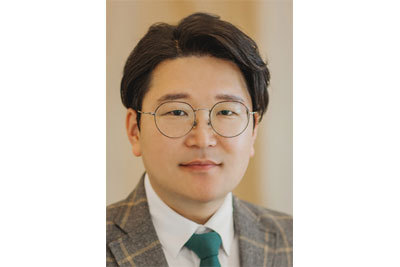 |
4EN Founder and CEO Lee Ho-chul (4EN) |
4EN is a South Korean startup with an ambition to become Asia’s largest greenhouse gas reduction initiative.
The company aims to tackle the climate change problem using sustainable businesses ideas such as mitigating greenhouse gases and reducing toxic agricultural by-products, produces solid fuel, organic fertilizers, and bioplastic from coffee grounds and agricultural by-products, such as peanut shells.
Up until a few years ago, the 9-year-old company was best-known for coffee pellet fuel, biofuel made from spent coffee grounds which 4EN produced with coffee grounds collected from Starbucks Korea and Maeil Dairies. The idea was to turn the country’s 150,000 tons of spent coffee grounds a year, most of which are burnt of buried, into something useful, Lee Ho-chul, the founder and CEO of 4EN, told The Korea Herald on Aug. 21.
In 2018, their efforts to reduce carbon emissions with biofuel was recognized when the company was certified carbon credits from the Ministry of Environment, as the first private company in the agricultural industry to voluntarily contribute to emission reduction.
In January this year, the company was approved by the United Nation for its biofuel plant project in Myanmar as part of the Clean Development Mechanism. Under the CDM, industrialized countries can earn salable certified emission reduction credits by doing emission-reduction projects in developing countries.
With the biofuel project in Myanmar, Lee wants to tackle methane emission, one of the most significant drivers of climate change. Methane is emitted during the production of coal, natural gas and oil while also being present in livestock and organic waste and a significant contributor to the greenhouse effect as it is 30 times stronger than Co2 in its ability to trap heat.
“Asia has been experiencing a swift increase in methane emission due to fast economic growth and agricultural practices,” Lee said, adding that reducing methane emissions would help emerging economies cope with environmental issues and control their mitigation efforts.
As Myanmar, an agricultural nation with a population of 53.71 million, has low electricity penetration, it relies heavily on fuelwood collection and charcoal for energy, a practice that has contributed to deforestation.
Due to the goals and impact the company creates, 4EN is widely referred to as a social venture and was selected as one of the six impact unicorn candidates by a coalition led by SK Group and Shinhan Financial Group. However, when Lee founded nine years ago right after he graduated with a master’s degree in landscape architecture and rural system engineering, his goal was to create a competitive, profitable and scalable biofuel startup.
Perhaps, his business idea came ahead of the time but the company now sees renewed interest in reducing greenhouse effects from many companies, particularly those who are increasingly aware of and forced to pay attention to their environmental footprints.
“In Myanmar, we want to replace wooden charcoal with solid fuel from agricultural by-products, starting with peanut shells to produce biofuel,” Lee noted. “We hope to use other biomass to make biofuel and tap into other Southeast Asian countries such as Vietnam and Laos to ultimately become Asia’s largest emission reduction initiative.”
By Park Ga-young (
gypark@heraldcorp.com)





![[Exclusive] Hyundai Mobis eyes closer ties with BYD](http://res.heraldm.com/phpwas/restmb_idxmake.php?idx=644&simg=/content/image/2024/11/25/20241125050044_0.jpg)

![[Herald Review] 'Gangnam B-Side' combines social realism with masterful suspense, performance](http://res.heraldm.com/phpwas/restmb_idxmake.php?idx=644&simg=/content/image/2024/11/25/20241125050072_0.jpg)
